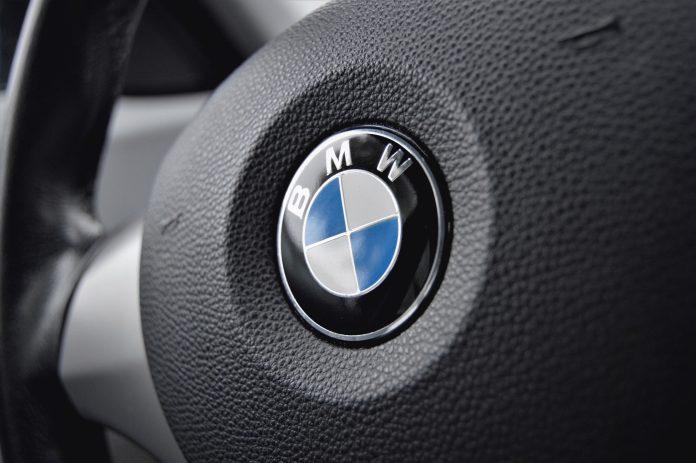The Bayerische Motoren Werke, known globally as BMW, is a German automotive manufacturer renowned for its luxurious and high-performance vehicles. With a rich heritage spanning over a century, BMW has left an indelible mark on the automotive industry. The history of BMW is a captivating tale of innovation, perseverance, and driving excellence. Its journey started as an aircraft engine manufacturer, and after several transitions, it became a leading automotive brand.
Let’s go through this Bavarian carmaker’s history to learn more about it.
The Early Years
The origins of BMW can be traced back to 1916, during World War I. It was originally called Bayerische Flugzeugwerke and used to primarily produce aircraft engines for the German military. Their BMW IIIa has been the most notable among all engines. It was a powerful inline-six-cylinder engine that played a vital role in numerous aircraft. Following the war, the Treaty of Versailles restricted German aircraft production, prompting BMW to shift its focus to other endeavours.
Venturing into Automobiles
With rich engineering expertise and a desire to explore new opportunities, BMW turned its attention to the rapidly evolving automobile industry. In 1928, the company acquired Fahrzeugfabrik Eisenach, a manufacturer of small cars. This acquisition provided BMW with the foundation to produce its own automobiles. The first BMW-branded car, the Dixi 3/15 PS, was released in 1929. It marked the beginning of BMW’s journey as an automobile manufacturer.
Latest Updates: Automotive News
Defining Moments
The 1930s witnessed significant milestones for BMW. The company gained international recognition with the launch of the iconic BMW 328 sports car in 1936. Its lightweight construction, advanced aerodynamics, and powerful engine made it a formidable competitor on the racing circuit. The BMW 328’s success paved the way for the company’s continued focus on performance-oriented vehicles.
Post-War Challenges and Resurgence
World War II brought unprecedented challenges for BMW. The company’s production facilities were heavily damaged, and it was temporarily prohibited from manufacturing automobiles. However, by the late 1950s, BMW began a remarkable resurgence, introducing a series of innovative models that re-established its reputation for engineering excellence. Later, the BMW 1500 marked the beginning of the “New Class” of BMW vehicles. It was introduced in 1961 and set the stage for the brand’s future success.
The “Ultimate Driving Machine”
In the 1970s, BMW adopted a new slogan that would become synonymous with the brand’s identity: “The Ultimate Driving Machine.” This mantra reflected BMW’s commitment to engineering vehicles that offered unparalleled driving pleasure, blending performance, handling, and luxury. The 3 Series, introduced in 1975, became a global sensation, solidifying BMW’s position as a leading luxury car manufacturer.
Innovations and Expansion
Over the years, BMW has consistently pushed the boundaries of automotive technology. The company has been at the forefront of advancements in safety features, alternative powertrains, and driver-assistance systems. Additionally, BMW expanded its product portfolio to include SUVs, electric vehicles, and high-performance models under its M division. This way the company catered to a diverse range of customers worldwide.
A Global Icon
Today, BMW stands as a global icon of automotive excellence. Its vehicles are revered for their elegant design, cutting-edge technology, and dynamic performance. The brand’s commitment to sustainability is exemplified by its development of electric and hybrid models. The BMW i3 and the BMW i8 are examples of electrification of the BMW cars.
Future Expectations
Looking towards the future, BMW remains at the forefront of technological advancements. The company continues to invest in research and development, exploring emerging trends like autonomous driving, connectivity, and sustainable mobility solutions. BMW’s commitment to electric vehicles is evident in its expanding range of electrified models. The BMW i4 and the fully electric BMW iX are the models that exhibit this commitment.
Beyond BMW Moniker
Beyond its automotive endeavors, BMW has also ventured into other sectors. The BMW Group encompasses brands such as MINI and Rolls-Royce, broadening its influence in the luxury automobile market. Furthermore, BMW’s involvement in motorsports, particularly in Formula 1 and touring car championships, has showcased its engineering prowess and competitive spirit.
Customer Satisfaction
Throughout its history, BMW has focused on manufacturing exceptional vehicles and prioritized customer satisfaction and brand loyalty. The company’s dedication to providing outstanding service and a premium ownership experience has fostered a loyal community of BMW enthusiasts worldwide.
Also Read: The Mind-Boggling Trends in Automotive Safety
The Legacy
The history of BMW makes it clear that the brand’s success is attributed to its unwavering commitment to craftsmanship, innovation, and the pursuit of driving pleasure. From aviation to a global luxury automotive leader, BMW has consistently pushed the boundaries in automotive engineering.
With each new generation of vehicles, BMW continues to redefine the driving experience, embodying the spirit of sheer driving pleasure. As we embark on the next chapter of automotive innovation, one thing remains certain: BMW will continue to shape the future of mobility, delivering performance, luxury, and innovation that captivates drivers around the world.
Conclusion
The history of BMW is a testament to the power of innovation and a relentless pursuit of automotive perfection. BMW has continually evolved to meet the changing needs and demands of the automotive industry. It is evident in its journey from aircraft engine manufacturing to its present-day status of luxury and driving pleasure. With a legacy built on precision engineering, BMW has captured the hearts of car enthusiasts worldwide.
In conclusion, the storied history of BMW shows the company’s ability to adapt, innovate, and create inspiring and captivating vehicles. From aircraft engines to luxury automobiles, BMW’s journey has been one of constant evolution. It has been driven by a passion for excellence and a commitment to pushing the boundaries of automotive engineering. As we look back on the milestones and achievements of BMW, we can only anticipate the remarkable contributions it will continue to make in the years to come.



